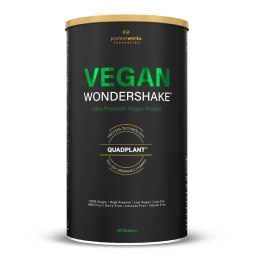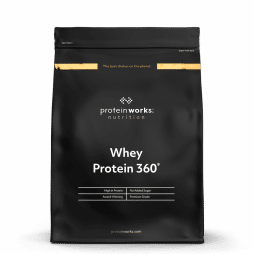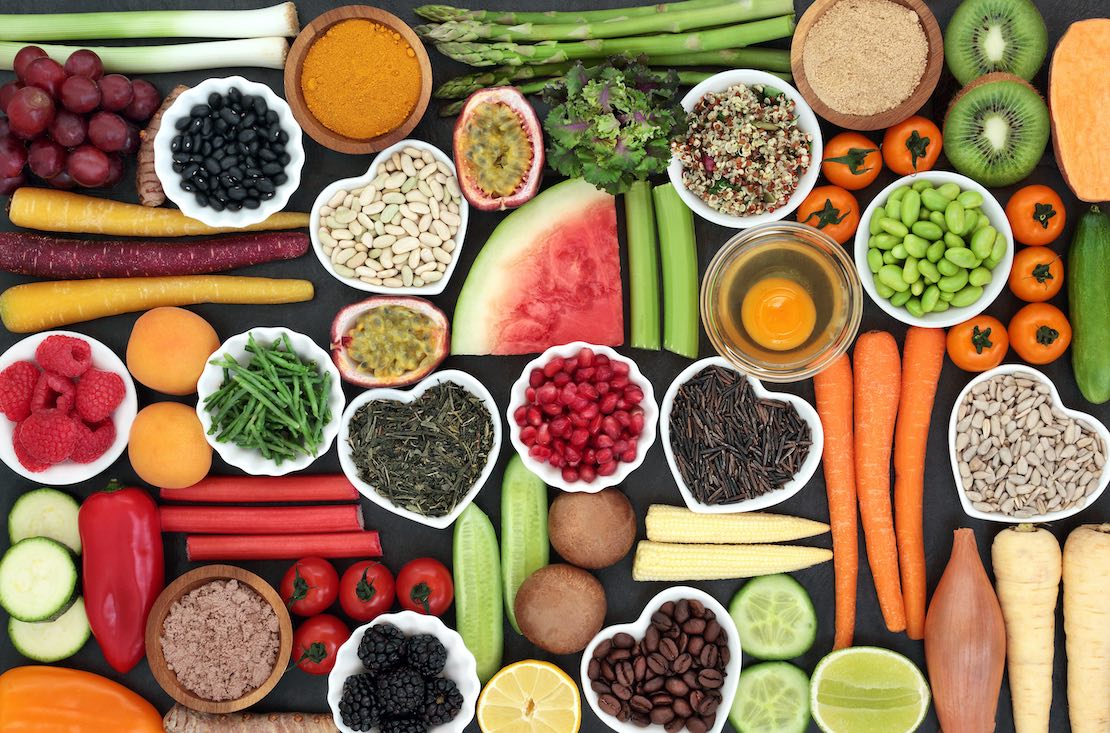
Can You Have Too Much Protein?
In the ever-evolving landscape of nutrition, protein has emerged as the undisputed superhero of macronutrients. From fuelling muscle growth to supporting weight loss, its benefits are widely celebrated.
However, as with any nutritional powerhouse, the question arises: Can you have too much protein? We’ll delve into the nuances of protein consumption, dissecting the myths, unveiling the truths, and navigating the delicate balance between sufficiency and excess.
Join us on this journey to unravel the protein paradox, as we seek to understand the potential risks and rewards of a protein-rich diet and provide insights into optimizing your protein intake for a balanced and healthy lifestyle.
So, can you have too much protein? Let’s find out…
Why Do You Need Protein?
Protein is one of 3 macronutrients that provide calories to the body and consists 21 amino acids. These amino acids can be broken down into 2 groups:
- Essential: Cannot be produced by the body and must be obtained from the diet
- Non-essential: Can be produced by the body
When followed a the basics of protein and a balanced diet, with or without the inclusion of protein supplements you will likely obtain all the amino acids you need.
Protein’s role in the body is varied whilst it plays a part in immune function when it comes to working out it really shines for it high satiety which helps you feel fuller for longer after meals and how it can help you build or maintain muscle mass.
It does this by helping you regulate muscle protein synthesis and muscle protein breakdown. It’s the relationship between these 2 processes that determine whether or not you’re building muscle.
This because on a daily basis various activities will either increase muscle protein synthesis (strength training and protein intake) or muscle protein breakdown (fasting and endurance exercise) and managing these factors to maintain a positive balance is key to long-term muscle growth.
The amount of protein you eat is an important part of this process.
How Much Protein Per Day?
The topic of how much protein you should consume can be a controversial one, with different people giving you different amounts. However, a good place to start is the government guidelines.
In the UK it’s suggested that the general population get 0.75g of protein per kilogram of bodyweight. This is known as your RDA or your recommended daily allowance and is the minimum amount of protein you should get according the government.
In the USA, it is 0.8 g per kg of body weight [1, 2] and per pound of body weight this is 0.34 g and 0.36 g respectively.
For a 160 lbs male this would be about 55 g of protein daily
Now whilst this is a good place to start, for active individuals who want to maintain or build muscle mass this amount is too low [3, 4, 5].
For active individuals, particularly those who are regularly strength training the research [6, 7, 8] consistently shows that a protein intake of 0.6 – 1.1 g per lb of body weight is what you need.
For a 160 lbs male this would be between 96 – 176 g of protein per day.
When Should You Eat Your Protein?
There is a pervasive idea in the fitness industry that you must eat protein in small amounts otherwise you won’t absorb it all and some will be wasted.
This idea stems from research that shows eating more than 20 – 25g of protein doesn’t appear to cause a larger rise in muscle protein synthesis [9].
However, more recent studies have shown that larger amounts of protein could be more beneficial than smaller ones [10]. With studies showing that eating up to 40g of protein provides a greater increase in muscle protein synthesis [10] and, a more effective reduction in muscle protein breakdown [11].
In other words, the total amount of protein you eat is more important that when or how you eat it [12].
Can You Have Too Much Protein?
Yes, you can but it probably doesn’t affect you in the way you’ve been led to believe.
The truth is an excessive protein intake will limit the amount of fat and carbohydrates you can eat when following a calorie-controlled diet and can cause weight gain when in a calorie surplus.
However, beyond this, the typically touted side effects are not something healthy individuals need to be concerned with. For example, there is little to no evidence that supports the claims that protein results in kidney damage, dehydration or cancer.
- Kidney damage: there are no major studies that show protein can cause kidney damage in healthy individuals, however in those with pre-existing kidney disease this can be an issue [13].
- Dehydration: Whilst there is some evidence [14] that protein intake decreased hydration levels, more recent research [15] shows that protein intake has a minimal impact on hydration
- Cancer: Whilst some research [16] shows that diets high in red meat may increase the risk of some cancers, other research [16] shows that protein from other sources decreases cancer risk. It’s thought that the cancer risk from red meat is to do with hormone and carcinogenic compounds and not protein in and of itself.
Summing Up
Protein is an important part of the diet for active individuals, particularly those who regularly lift weights and are interested in changing their body composition.
What’s more, a protein intake as recommend in this article is completely safe for healthy individuals, which means you will only run into problems when exceeding the amount of protein recommend by the scientific community.
Additionally, you do not need to worry about how much protein you get per meal, as whilst it’s not recommended to get your whole daily allowance in one go, you can get more than 20g without worrying about whether you’re body can use it all.
References
[1] https://www.nutrition.org.uk/nutritionscience/nutrients-food-and-ingredients/protein.html
[2] https://ods.od.nih.gov/Health_Information/Dietary_Reference_Intakes.aspx
[3] Morton RW, Murphy KT, McKellar SR, et al. A systematic review, meta-analysis and meta-regression of the effect of protein supplementation on resistance training-induced gains in muscle mass and strength in healthy adults. British Journal of Sports Medicine 2018;52:376-384.
[4] Phillips, S. (2012). Dietary protein requirements and adaptive advantages in athletes. British Journal of Nutrition, 108(S2), S158-S167. doi:10.1017/S0007114512002516
[5] Bandegan A, Courtney-Martin G, Rafii M, Pencharz PB, Lemon PW. Indicator Amino Acid-Derived Estimate of Dietary Protein Requirement for Male Bodybuilders on a Nontraining Day Is Several-Fold Greater than the Current Recommended Dietary Allowance. J Nutr. 2017;147(5):850-857. doi:10.3945/jn.116.236331
[6] Phillips SM, Van Loon LJ. Dietary protein for athletes: from requirements to optimum adaptation. J Sports Sci. 2011;29 Suppl 1:S29-S38. doi:10.1080/02640414.2011.619204
[7] Lemon PW. Is increased dietary protein necessary or beneficial for individuals with a physically active lifestyle?. Nutr Rev. 1996;54(4 Pt 2):S169-S175. doi:10.1111/j.1753-4887.1996.tb03913.x
[8] Hoffman, J.R., Ratamess, N.A., Kang, J. et al. Effect of Protein Intake on Strength, Body Composition and Endocrine Changes in Strength/Power Athletes. J Int Soc Sports Nutr 3, 12 (2006). https://doi.org/10.1186/1550-2783-3-2-12
[9] Moore DR, Robinson MJ, Fry JL, et al. Ingested protein dose response of muscle and albumin protein synthesis after resistance exercise in young men. Am J Clin Nutr. 2009;89(1):161-168. doi:10.3945/ajcn.2008.26401
[10] Macnaughton LS, Wardle SL, Witard OC, et al. The response of muscle protein synthesis following whole-body resistance exercise is greater following 40 g than 20 g of ingested whey protein. Physiol Rep. 2016;4(15):e12893. doi:10.14814/phy2.12893
[11] Kim IY, Schutzler S, Schrader A, et al. The anabolic response to a meal containing different amounts of protein is not limited by the maximal stimulation of protein synthesis in healthy young adults. Am J Physiol Endocrinol Metab. 2016;310(1):E73-E80. doi:10.1152/ajpendo.00365.2015
[12] Schoenfeld BJ, Aragon AA, Krieger JW. The effect of protein timing on muscle strength and hypertrophy: a meta-analysis. J Int Soc Sports Nutr. 2013;10(1):53. Published 2013 Dec 3. doi:10.1186/1550-2783-10-53
[13] Martin WF, Armstrong LE, Rodriguez NR. Dietary protein intake and renal function. Nutr Metab (Lond). 2005;2:25. Published 2005 Sep 20. doi:10.1186/1743-7075-2-25
[14] High protein diets cause dehydration, even in trained atheletes. FEDERATION OF AMERICAN SOCIETIES FOR EXPERIMENTAL BIOLOGY
[15] Journal of the American Diabetic Association. Effects of Dietary Protein Intake on Indexes of Hydration William F.Martin PhD, Laura H.CerundoloMS, RD., Matthew A.PikoskyPhD, RD., Patricia C.Gaine PhD, RD., Carl M.Maresh, PhD (FACSM)., Lawrence E.Armstrong, PhD (FACSM)., Douglas R.Bolster, PhD., Nancy R.Rodriguez PhD, RD(FACSM)
[16] Pan A, Sun Q, Bernstein AM, et al. Red Meat Consumption and Mortality: Results From 2 Prospective Cohort Studies. Arch Intern Med. 2012;172(7):555–563. doi:10.1001/archinternmed.2011.2287









No Comments yet!